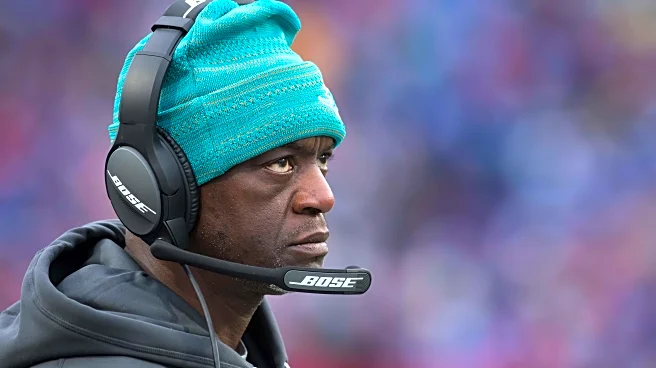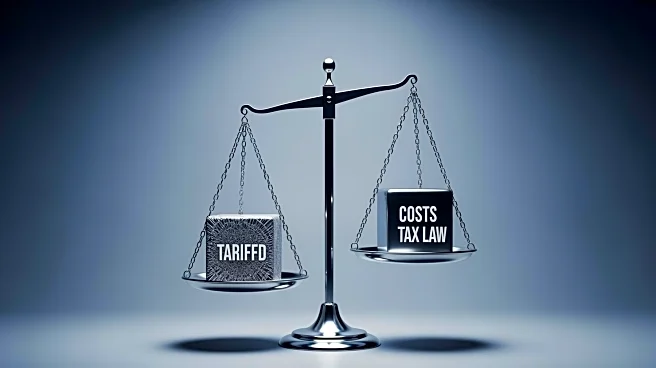What's Happening?
Marvin Dunn, a historian and civil rights advocate, recently engaged in a discussion with CBS News Miami's Jim DeFede regarding President Trump's controversial remarks about slavery. President Trump suggested that the Smithsonian should emphasize America's 'brightness' rather than focusing on the negative aspects of slavery. These comments have sparked a new cultural debate, with Dunn providing historical context and criticism. Dunn, an expert on Black Miami and Black Florida history, argues that such comments undermine the significance of understanding the full scope of America's past, particularly the impact of slavery on African American communities.
Why It's Important?
The remarks by President Trump and the ensuing debate highlight ongoing tensions in how American history is taught and remembered. This issue is significant as it touches on broader themes of racial justice and historical accuracy. The discussion reflects a larger cultural battle over the narrative of American history, with potential implications for educational policies and public discourse. Stakeholders in education, politics, and civil rights may be affected, as the debate could influence how history is presented in schools and public institutions, potentially impacting societal understanding of racial issues.
What's Next?
The controversy may lead to further discussions and debates among historians, educators, and policymakers about the portrayal of American history. There could be calls for educational reforms to ensure a balanced representation of historical events, including slavery. Civil rights groups and educational institutions might advocate for curricula that accurately reflect the complexities of America's past. Additionally, political leaders may weigh in, potentially influencing public opinion and policy decisions related to historical education.
Beyond the Headlines
This debate also raises ethical questions about the responsibility of public figures in shaping historical narratives. It underscores the importance of acknowledging and learning from past injustices to foster a more inclusive society. The cultural implications extend beyond education, affecting how communities understand their identities and histories. Long-term, this could influence cultural and social dynamics, as well as the ongoing struggle for racial equality in the United States.









